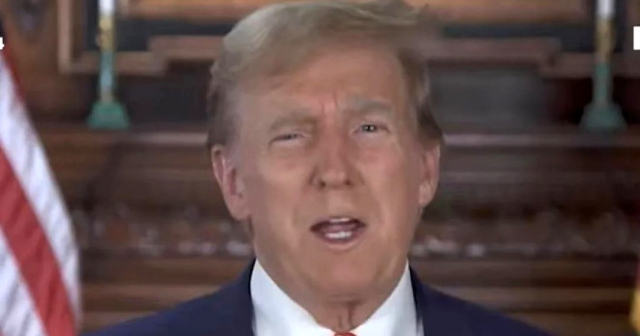In a resounding victory, the former US president Donald Trump swept the Iowa Republican caucuses, obtaining 51.1% of the vote, according to results provided by the Republican Party de Iowa.
Ron DeSantis, governor of Florida, came in second place with 21.2%, while the former governor of South Carolina and former ambassador to the United Nations, Nikki Haley, reached third place with 19.1%. Businessman Vivek Ramaswamy, who came in fourth place with 7.6%, withdrew his candidacy and expressed his support for Trump.
With 92 of the 99 counties fully counted, Trump leads the delegate distribution with 20, followed by DeSantis with eight, Haley with seven and Ramaswamy with three, of the 40 total delegates at stake.
However, DeSantis accused the media of interfering on Trump's behalf, arguing that projecting the former president's victory before many voters had voted is unacceptable interference in the electoral process.
The Florida governor's statement was confirmed with the coverage offered by media outlets such as CNN, NBC and Fox News, who announced Trump's victory with just a handful of votes counted.
"It is absolutely outrageous that the media interfered in the election by projecting the outcome before tens of thousands of Iowans even had the opportunity to vote," DeSantis said in a statement. "The media is pro-Trump and this is the most egregious example to date."
Media like NOW and others considered DeSantis' victory over Haley for second place “pyrrhic,” and predicted that it is difficult to see a clear path for his candidacy, in addition to the uncertainty about his funds to move forward.
Although she came in third place, Haley used her speech to proclaim that she is the only candidate capable of beating Trump, disparaging DeSantis' chances.
The GOP candidate finished closely behind DeSantis by consolidating the party's marginalized anti-Trump bloc and forming a coalition of college-educated Republicans, independents and even some Democrats who live in urban and suburban areas.
Trump - whose popularity does not seem to be affected by the cases he keeps open before justice - began his victory speech with a call for unity in the United States, regardless of political affiliation.
"Our country must come together. We want to come together. Whether you're Republican or Democrat, liberal or conservative, it would be so great if we could come together and fix the world, solve the problems and put an end to all the death and destruction that we're seeing," he said.
However, in a typical twist of his speech, he resumed his anti-immigrant rhetoric, describing the situation on the southern border with Mexico as an "invasion."
With these results in Iowa, the Republican race is taking shape, revealing intense competition between the main contenders and promising an exciting primary process.
Turnout was low in a cold, drama-free caucus, falling below that of the last Republican caucuses, held in 2016, when nearly 187,000 Iowans helped elect their party's candidate.
This year only about 110,000 people participated. The low turnout could be another sign against a peculiar process that has been the subject of intense criticism in recent years.
According to NOW, the Iowa results do not offer significant clues for the 2024 general election, and do not even serve to predict Trump's victory in the primaries. Caucuses, with their meeting hours and extended process, bear little resemblance to voting in most of the country.
In that sense, the media indicated that in the seven Republican elections contested since 1980, only two winners in Iowa achieved the party's nomination: Senator Bob Dole of Kansas in 1996 and Governor George W. Bush of Texas in 2000.
Although it is likely that a large majority of Republican voters will return to Trump in a general election, it is more difficult to predict which path the base of the Republican Party will take as the process of choosing its candidate for this year's elections progresses.
What do you think?
SEE COMMENTS (1)Filed in:
